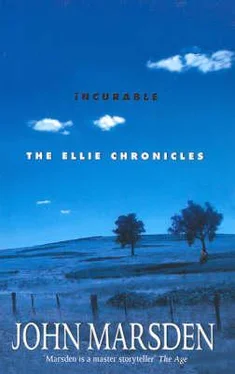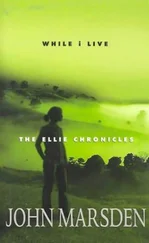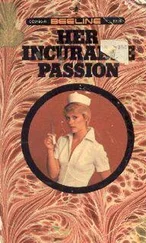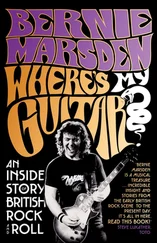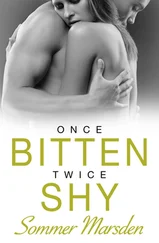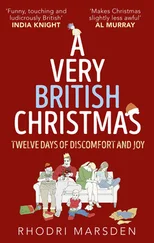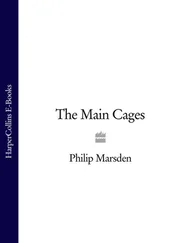John Marsden - Incurable
Здесь есть возможность читать онлайн «John Marsden - Incurable» весь текст электронной книги совершенно бесплатно (целиком полную версию без сокращений). В некоторых случаях можно слушать аудио, скачать через торрент в формате fb2 и присутствует краткое содержание. Жанр: Фантастика и фэнтези, на английском языке. Описание произведения, (предисловие) а так же отзывы посетителей доступны на портале библиотеки ЛибКат.
- Название:Incurable
- Автор:
- Жанр:
- Год:неизвестен
- ISBN:нет данных
- Рейтинг книги:3 / 5. Голосов: 1
-
Избранное:Добавить в избранное
- Отзывы:
-
Ваша оценка:
- 60
- 1
- 2
- 3
- 4
- 5
Incurable: краткое содержание, описание и аннотация
Предлагаем к чтению аннотацию, описание, краткое содержание или предисловие (зависит от того, что написал сам автор книги «Incurable»). Если вы не нашли необходимую информацию о книге — напишите в комментариях, мы постараемся отыскать её.
Incurable — читать онлайн бесплатно полную книгу (весь текст) целиком
Ниже представлен текст книги, разбитый по страницам. Система сохранения места последней прочитанной страницы, позволяет с удобством читать онлайн бесплатно книгу «Incurable», без необходимости каждый раз заново искать на чём Вы остановились. Поставьте закладку, и сможете в любой момент перейти на страницу, на которой закончили чтение.
Интервал:
Закладка:
You never never get used to death on a farm. What really upset me about this was that the mother duck must have seen the whole thing. My old enemy, the imagination, kept playing it over and over, the mother totally distraught, running backwards and forwards, the last three ducklings equally distraught but not knowing why, running backwards and forwards after her, the mother squealing and grunting her distress and agony as she watched her kids pecked into pieces while she was unable to do a damn thing about it.
Anyway, now we have a bit of four-by-two at the bottom of the door and so I guess it won’t happen again. Shutting the chook shed door after the ducklings have bolted.
I still want to know, though, which bird did it? The magpies, with their big and savage beaks, so out of proportion to the rest of them, stalking around like they own the place? The currawongs, hiding in the trees, peeping down like Japanese snipers in World War II? The crows, black angels, or rather, black ghosts, spirits of people who led bad lives and now can’t rest? I think it was probably the crows.
But I wouldn’t rule out the kookaburras. We have a lot of kookaburras, don’t know why. I don’t mind, as I like them, and I think they probably keep the snakes down. I saw a kookaburra eating a small snake last spring. It took him a while but he got it down. Dad told me kookaburras are ‘the true communists’, because they work together for the good of all. He said if one pair hatch some young, the other adults put aside what they’re doing and help fetch food for the new chicks. I must admit I’ve never seen this happen, although I’ve watched for it often enough.
Kookaburras are pretty — they drop the most beautiful feathers, with lovely soft brown and blue colours — but they also have beaks which to a worm or a moth or a duckling must look like an Exocet missile with a pair of eyes.
When I let the ducks out and they’ve shovelled up enough seed they head down to a small dam that we put in to provide water for the turkeys and which was a project that never got off the ground (like the turkeys actually). (In fact it was a turkey.) (And I suppose you don’t really want a dam to get off the ground.)
The turkey dam is one of the ducks’ favourite places. They love to put their food through water, dragging stale hard bread crusts under to soften them and break them up. There’s not many days when I can rush off without taking at least a minute to enjoy watching the ducks. Sure, when you watch them closely for a while you can see how they get up to some pretty ugly stuff. Drakes raping other drakes, drakes raping ducks that are too young, ducks killing their own ducklings. Somehow, though, as they launch themselves into the dam with satisfied clucks, like middle-aged ladies descending on the jam exhibit at the Wirrawee Show, you forget all that. ‘From troubles of the world I turn to ducks.’ I think that’s the first line of a poem.
It only takes the ugly caw of a crow or a bellow from Gavin or a stick falling from high in a gum tree to break the spell the ducks put on me. Suddenly I’m rushing again to check on an ailing cow or to get an LPG bottle that I want refilled or to pick up a rubber mallet I promised to lend Mr Yannos. In the meantime Gavin’s meant to be doing his jobs: making his bed, feeding Marmie and putting her in her yard, locking the house (something we never had to worry about in the past), fuelling the ute and getting it out of the shed and warming it up. Some days we take the bikes, but in winter it’s usually the ute. Time’s so tight on a school morning that I hit the ute running, like a Formula 1 driver, and take off for the front gate with a squeal of tyres. Traditionally, as we pass the shearing shed, Gavin asks me, What you forgot?’ I could never teach him any other way of asking the question. He was so eager to catch me out that he didn’t care about grammar. And there is always something. It might be trivial, like taking the clothes out of the washing machine; it might be personal, like cleaning my teeth; it might be major, like leaving the lunches on the kitchen table or forgetting to cancel the Monsanto guy who is coming out to talk about sorghum.
We herb down the driveway, spraying mud or blowing clouds of grit and dust, depending on the time of year, me driving and checking out the cattle on the right, Gavin checking them out on the left. It’s not a proper inspection of course — it’s many hundred acres short of a proper inspection — but a couple of times we’ve seen things that have suddenly terminated any plans to go to school that day. That doesn’t cause Gavin the least distress but it causes me enough for both of us.
Early in the trip we pass the skeleton of the Datsun 120Y that I used to have for these drives to the gate. It had been my personal paddock basher. Like all Datsun 120Y’s it was yellow. I think it was compulsory for them to be yellow. They were born yellow. This one was still yellow, or at least those parts that had any paint left were yellow. The rest was rusty red. Something had happened to it during the war. If its skeleton could talk, it would have told a tale of suffering and tragedy and death. However, the chances were that I would never hear its story. When I got back after the war, my beloved little Datsun was already a wreck.
The trip to the Providence Gully Road gate is exactly four kilometres, or a bit over, depending on which speedo you use. Most days it tends to be a race between us and the bus. Occasionally the bus has gone; quite often it’s waiting for us; most often it’s in sight and waiting for us by the time we hide the ute, grab our stuff and lock the car. These days we’re never quite sure who’ll be driving, out of Mr Gruber, who used to be our nearest neighbour but who retired after the war and is now living in Wirrawee and is really nice; Mrs Nelson, who lives a few k’s down the road and is really pretty horrible; and Jerry, who’s about twenty-five and is no Otto, but is a thousand light years closer to Otto than the other two.
Mr Gruber and Jerry wait for a few minutes, even if they can’t see us, but Mrs Nelson only waits if she can see the cloud of dust, and then she scowls at us as we get on. I mean, fair enough, it’s up to us to get there on time, and most days we do, even though I’ve made it sound like we’re hopelessly disorganised, but we do live in slightly difficult circumstances, and most of the days we’re late because of ‘unforeseen circumstances’, like someone else’s cow wandering up the driveway, or a fallen branch blocking the road, or a koala injured by a fox or a dog.
You can’t control nature and you can’t control your neighbours, as my father used to say.
And I couldn’t control Gavin. Sitting on the bus, the morning after the conversation with Mark’s mum, I watched the back of his head and wondered what on earth I could do with him. These days the paper was full of stories about post-traumatic stress. There was a post-traumatic stress advice column, there were articles by doctors about post-traumatic stress, there were post-traumatic stress support groups. It seemed to me that Gavin was a post-traumatic stress kid in a posttraumatic stress world.
He was digging around in the seat, aggravating the boy next to him, chipping at the rubber lining of the window with his fingernails. Then he did something to the girl in the seat in front, a Year 6 from the primary school. She suddenly turned around and knelt up and yelled over the top of her seat, ‘Stop it, you little faggot.’
My problem with Gavin was simple enough. Was he just a typical naughty kid or was he deeply disturbed and needing a lot of help? I knew one thing: I was deeply disturbed about him and I needed a lot of help.
CHAPTER 14
Gavin nearly disintegrated when he realised I was getting off the bus with him. His eyes rolled around like they weren’t attached to anything any more, and suddenly he was too weak to pick up his bag. I hadn’t said anything to him the night before about his being sent home early, or about the cat, but when I got up and headed down the aisle towards the door he knew that this was D-Day, this was the hour of power, and he was about to be nailed to the wall like the fox skins pegged out in the barn.
Читать дальшеИнтервал:
Закладка:
Похожие книги на «Incurable»
Представляем Вашему вниманию похожие книги на «Incurable» списком для выбора. Мы отобрали схожую по названию и смыслу литературу в надежде предоставить читателям больше вариантов отыскать новые, интересные, ещё непрочитанные произведения.
Обсуждение, отзывы о книге «Incurable» и просто собственные мнения читателей. Оставьте ваши комментарии, напишите, что Вы думаете о произведении, его смысле или главных героях. Укажите что конкретно понравилось, а что нет, и почему Вы так считаете.
